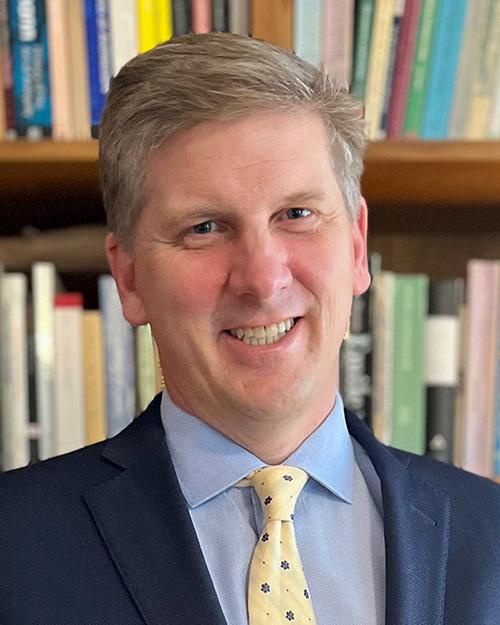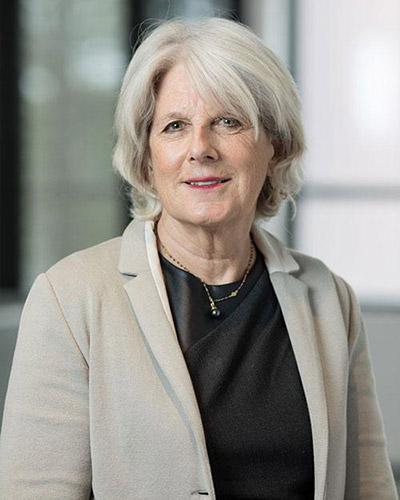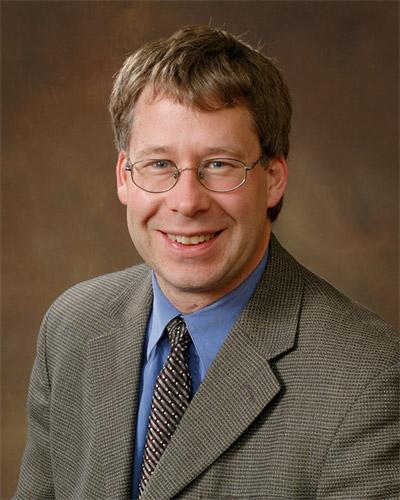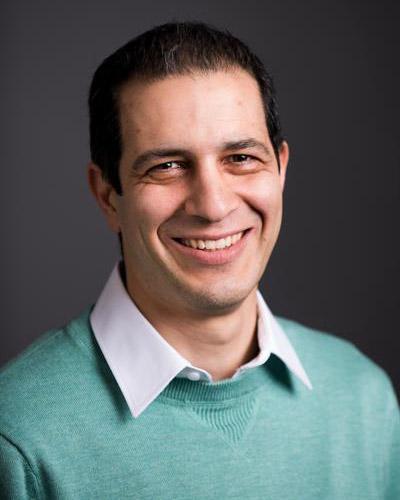
Eric Hines
Professor of the Practice and Kentaro Tsutsumi Faculty Fellow, Civil and Environmental Engineering
Eric Hines, Ph.D., P.E. directs the offshore wind energy graduate program and has over 25 years of experience engineering innovative infrastructure. Major offshore wind related projects include: the Wind Technology Testing Center in Charlestown, MA; the New Bedford Marine Commerce Terminal; the Partnership for Offshore Wind Energy Research (POWER-US); Digital Twinning the Block Island Wind Farm; and Transmission Expansion Planning for U.S. Offshore Wind. He works at the technology/policy interface to develop systems-level design concepts and has received numerous awards for his work in industry-driven research. He studied engineering and public policy as an undergraduate at Princeton University and as a Fulbright Fellow in Germany. He holds an M.S. in applied mechanics and a Ph.D. in structural engineering from the University of California, San Diego.

Barbara Kates-Garnick
Professor of Practice, The Fletcher School
Barbara Kates-Garnick, Ph.D. leads Tufts’ work on electricity transmission policy. Her extensive career in energy, environment, and clean technology has spanned the private and public sectors. Dr. Kates-Garnick served as the undersecretary of energy for the Commonwealth of Massachusetts where she was responsible for guiding energy policy and overseeing the development of the New Bedford Marine Commerce Terminal. She has served as the co-chair of Massachusetts’ Global Warming Solutions Act Implementation Advisory Committee and she led the creation of New York University’s Polytechnic School of Engineering clean tech incubator. She has served as a corporate officer at a major U.S. utility, a consultant on strategic energy initiatives, and a public utility regulator. She holds a Ph.D. from The Fletcher School.

Daniel Kuchma
Professor, Civil and Environmental Engineering
Dan Kuchma, Ph.D. came to Tufts in 2014 from one of the nation’s top structural testing laboratories to help advance the U.S. offshore wind industry. Dr. Kuchma is a global leader in advanced testing methods for structural concrete under complex states of stress. He currently heads multiple projects for the U.S. Departments of Energy and the Interior related to the corrosion and fatigue of offshore wind foundations. He leads Tufts’ efforts on nature-inclusive design, working directly with the nation’s top marine biologists, ocean chemists, and fisheries experts on designing offshore wind farms that not only protect the environment but also improve ocean habitats and enhance biodiversity. Dr. Kuchma combines his experience in earthquake engineering and offshore oil and gas to develop innovations that can extend wind turbine foundation service lives beyond 100 years. He holds a Ph.D. from the University of Toronto.

Babak Moaveni
Professor, Civil and Environmental Engineering
Babak Moaveni, Ph.D. leads Tufts’ work on digital twinning, combining physics-based and AI approaches to model offshore wind turbines with extremely high levels of accuracy. His current portfolio features Bayesian Assimilation Frameworks for the first U.S. offshore wind farms at Block Island and the Coastal Virginia Offshore Wind Pilot Project. Additional projects include multiple projects with OEMs and offshore wind developers in the North Sea. Fully trained to access and instrument offshore wind turbines, Dr. Moaveni is an international leader in offshore data acquisition and assimilation. He holds a Ph.D. from the University of California, San Diego.

Beth Rosenberg
Associate Professor, Public Health and Community Medicine
Beth Rosenberg, Ph.D. leads Tufts’ transatlantic offshore wind safety initiative in collaboration with the University of Strathclyde in the UK. Her longstanding collaborations with the United Steel Workers and her extensive connections to unions in the U.S. and the U.K. form the basis for Tufts’ approach to diversity, equity, inclusion, and accessibility in the workforce. Dr. Rosenberg served as an appointee to the U.S. Chemical Safety Board under President Barack Obama, where she oversaw a wide array of complicated and dangerous industries. Her attention to women in the workforce, her approach to safety culture, and her focus on communication between workers, management, and regulators has established her as a critical voice within the emerging U.S. offshore wind workforce. She holds a Ph.D. from the University of Massachusetts Lowell.
